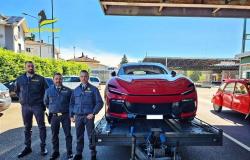How much does an election cost? The answer is trivially simple: a lot. Based on what was reported in the sessions of the last decade (data source Ministry of the Interior), Italian spending is around 400 million euros that is, approximately 6,135 euros per seat, a figure which has remained fairly unchanged and which includes the chapter relating to scrutinizing staff. But how much do presidents, secretaries and scrutineers earn in elections? Depends. The amount varies not only depending on the role held but also on the type of seat in which one is employed and on the quantity of ballots provided to those entitled to vote. In the province of Arezzo there will be 416 ordinary and special polling stations and the workforce employed in them will count on 2,352 citizens.
The composition of the seats
To understand how much the human capital involved in electoral operations costs, it is essential to know how much is needed to set up a polling station capable of carrying out its activities regularly. The Ministry of the Interior says that: “the polling station is made up of a president, a secretary and four scrutineers. One of the scrutineers, chosen by the president, assumes the functions of vice-president. The appointment of the members of the polling station, as a rule, also applies for the possible run-off round, at least three members must always be present, including the president or vice-president”.
Therefore, one seat ordinary It has 6 members. But this category isn’t the only one. Also on the list are: seats hospital, flying and special. The seat hospital is constituted and operates exactly like the ordinary one if the beds are between 100 and 199 (ditto the prison polling station), the special polling station is constituted in addition to the ordinary or hospital polling station and is made up of a president and two scrutineers . Three members in total.
The accounts of the province of Arezzo
In Arezzo i ordinary seats of the municipalities in the province there are 368. To these must be added: 43 special, 4 hospital and 1 present in prison. Of the over three hundred and sixty initials, 188 will be given two ballots to those entitled to vote: one for the European elections (pink) and another for the municipal elections (light blue).
A president of a ordinary seat in which those entitled show up only to cast their vote for the European elections, he will earn 138 euros per turn. In the province, this role will be filled by 180 citizens corresponding to the seats where there will be no administrative round. The total expense for these tasks is 24,840 euros. There are a total of 900 scrutineers at these polling stations and they will receive 110.40 euros per person for a total of 99,360 euros.
In others 188 ordinary seats in which both the European and the administrative elections will take place, the presidents will receive 209.50 euros and the other members 163 euros. The total provincial expenditure for the former is 39,386 euros and for the latter 153,220 euros.
43 are instead i special seats. The cost of staff is approximately halved compared to the ordinary ones and, assuming that consultations are held in all forty-three for both the European and the administrative ones, the costs would amount to a total of 13,499.85 of which 4,450.50 for the presidents and 9,049.35 for the scrutineers.
Finally to 4 hospital seats and to that in prison A total of 30 presidents (5) and scrutineers (25) will be assigned. The amount paid is 2,271.25 euros.
Summing up
Only for the members of the seats the total expense is equal to 330,307.85 euros and will be assigned in the manner described above depending on the type of position held. More generally, recovering the initial figure regarding the estimates for the maintenance of each single seat (6,135 euros) the multiplication is quickly done. Between ordinary and special polling stations throughout the province, they will cost over 2.5 million euros, a bill that includes a whole series of items defined as fixed and variable costs which include setting up ballot boxes and voting booths, law enforcement agencies, connections , stationery, IT support and the cost of the ballot papers themselves, as well as the reimbursements provided for travel and meals. Who pays? The State and the Municipalities will do it 50/50 where both the European and administrative elections will take place while, in the case of the European elections only, the State will pay. In any case, the money will indirectly come from a single pocket: that of the taxpayers.



